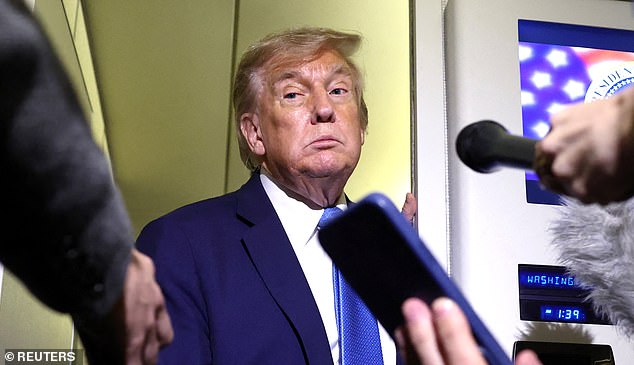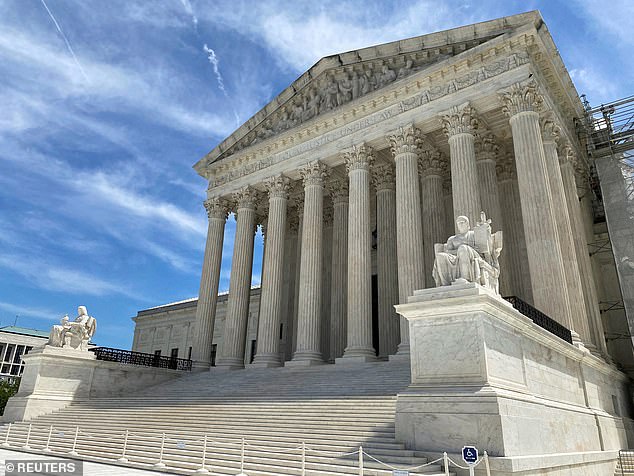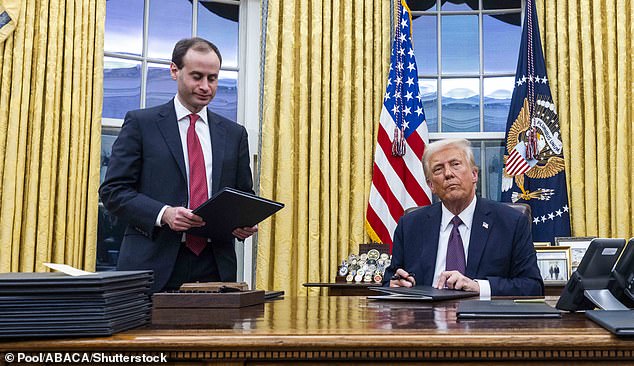The Supreme Court on Friday ruled that individual judges lack the power to issue nationwide injunctions as it delivered a landmark ruling in a case about the right to birthright citizenship.
It was a historic decision that was seen as a major victory for President Donald Trump in his battle with the judiciary.
He has complained about individual judges in any state being able to issue orders against his policies that apply across the country.
It is a ruling that will have far-reaching consequences for those challenging other Trump administration policies in the future.
The court ruled 6-3 in favor of Trump, with all six conservative justices – including the three he appointed – siding with the president.
The case arose after a battle between Trump and various judges in states far from Washington over his plan to end the right to birthright citizenship.
Trump had issued an executive order that would deny citizenship to U.S.-born children of people who are in the country illegally, and several judges issued injunctions.
The Supreme Court justices ruled those lower judges did not have the power to block Trump’s policies nationwide.
However, in a complex ruling, the justices did leave open the possibility that Trump’s specific birthright citizenship changes could remain blocked.

The Supreme Court handed President Donald Trump a massive blow on Wednesday when it ruled against his
Friday’s case stemmed from an executive order Trump signed when he took office that ended birthright citizenship – the legal principle that U.S. citizenship is automatically granted to individuals upon birth.
Under the directive, children born to parents in the United States illegally or on temporary visas would not automatically become citizens, radically altering the interpretation of the Constitution’s 14th Amendment for over 150 years.
The Supreme Court did not rule on the legality of Trump’s order purporting to end birthright citizenship and left open a legal path to challenge it.
Trump claims birthright citizenship was tied to ‘slavery’ and should be immediately dismantled.
‘That’s not about tourists coming in and touching a piece of sand and then all of the sudden there’s citizenship, you know they’re a citizen, that is all about slavery,’ the president argued.
‘If you look at it that way, that case is an easy case to win,’ he had previously stated.
The 6-3 Supreme Court decision was written by Justice Amy Coney Barrett.
‘Federal courts do not exercise general oversight of the Executive Branch; they resolve cases and controversies consistent with the authority Congress has given them,’ she wrote.
However, Trump’s executive order will not go into effect for 30 days, the justices said in their opinion, which allows is legality to be further challenged.
In a concurring opinion with Barrett, Justice Brett Kavanaugh said another way to challenge the executive order is to ‘ask a court to award preliminary class wide relief that may, for example, be statewide, regionwide or even nationwide.’
But the larger implication of the ruling affects the power of individual judges.
The court’s decision upends the ability of a single federal judge to freeze presidential policies on a nationwide basis.
Judges have used this powerful and controversial tool to block policies instituted by Democratic and Republican administrations.
The liberal Supreme Court justices disagreed with the ruling.
Justice Sonia Sotomayor led the dissent.
‘No right is safe in the new legal regime the Court creates. Today, the threat is to birthright citizenship. Tomorrow, a different administration may try to seize firearms from law-abiding citizens or prevent people of certain faiths from gathering to worship,’ she wrote.
‘The majority holds that, absent cumbersome class-action litigation, courts cannot completely enjoin even such plainly unlawful policies unless doing so is necessary to afford the formal parties complete relief. That holding renders constitutional guarantees meaningful in name only for any individuals who are not parties to a lawsuit. Because I will not be complicit in so grave an attack on our system of law, I dissent.’
The majority opinion in the Trump v. CASA Inc., New Jersey and Washington case came on the last day of the high court’s term.
Democratic states and an immigrant rights group sued to stop Trump’s January 20, 2025 executive order from taking effect.
Lower courts issued nationwide preliminary injunctions on the presidential order.

Friday was the last day for the Supreme Court to issue opinions
Birthright citizenship was ratified in 1868 in the 14th Amendment of the Constitution, establishing that anyone born on American soil, regardless of their parents’ citizenship or immigration status, is automatically a U.S. citizen.
‘All persons born or naturalized in the United States, and subject to the jurisdiction thereof, are citizens of the United States and of the State wherein they reside,’ Section 1 of the 14th Amendment states.
After his election but before being sworn in as president for a second time, Trump vowed he would fight for a constitutional shake-up by ending the provision.
‘Can you get around the 14th Amendment with an executive action?’ NBC host Kristen Welker asked Trump in an interview that aired in December.
‘Well, we’re going to have to get it changed,’ he said. ‘We’ll maybe have to go back to the people. But we have to end it.’
‘We’re the only country that has it, you know,’ Trump added in explaining his bid to end 125 years of precedent.
The president was elated in April when the Supreme Court decided to take on the case despite the high court rarely hearing emergency appeals.
‘I am so happy,’ he told reporters in the Oval Office on April 17. ‘I think the case has been so misunderstood.’
But oral arguments earlier this spring set the stage for the staggering decision that the president is sure to denounce.

Section 1 of the 14th Amendment establishes that all those born on American soil are granted U.S. citizenship – regardless of whether their parents are citizens or not

Among the executive orders Trump signed on his first day back in office was an action seeking to reel in the birthright citizenship provision of the Constitution. It was immediately challenged by Democratic-led states and immigrant advocacy groups
U.S. Solicitor General D. John Sauer was grilled by both liberal and conservative justices over how the narrowing of birthright citizenship rights would work when put into action.
Sauer didn’t seem clear on how it would work, and said it would be up to legislators to work out the logistics.
‘What do hospitals do with newborns?’ Justice Brett Kavanaugh, a Trump pick, questioned during oral arguments last month. ‘What do states do with a newborn?’
‘Federal officials will have to figure that out,’ Sauer replied.
Additionally, Justice Amy Comey Barrett was not pleased with how Sauer refused to answer a legitimate question from liberal Justice Elana Kagan.











